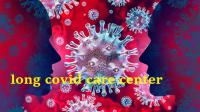Категории
Теги
-
#Sex Doll
#ai sex dolls
#love doll
#AF doll
#sex toy
#TPE sex dolls
#WM Doll
#Real love dolls
#realistic sex doll
#Silicone Reborn Dolls
#silicone sex doll
#curvy doll
#pregnant sex dolls
#sex dolls for sale
#pregnant love doll
#Real Doll
#Piper Doll
#Sino Dolls
#Sex Dolls
#silicone sex dolls
#COVID-19
#post covid brain fog
#long covid brain fog
#COVID
#Brain fog
#LongCovidCareCenter
#Long COVID-19 Symptoms
#post covid fog
#Neurologic symptoms
#Long COVID
#Memory Loss
#COVID19 headache
#Mild COVID
#Post COVID Fatigue
#Dysautonomia
#POTS
#AsianstarCNC
#CNC machining factory
Архив
What exactly is COVID brain fog?
-
Автор Ella Joy - Категория Культура и искусство - #post covid brain fog #Long COVID-19 Symptoms - 282 просмотров
Post Covid Brain Fog has a hard time concentrating. They can't think of specific words they want to use, and they're uncharacteristically forgetful. found they still had brain fog as part of their Long acute sequelae of experiencing COVID or SARS CoV-2 infection, which experts call PASC.
What is brain fog?
post covid brain fog is a term used to describe slow or sluggish thinking, and it can happen in many different situations—for example, when someone is sleep deprived or feeling unwell, or drowsiness as a side effect of medication. Brain fog can also occur after chemotherapy or a concussion.
In many cases, brain fog is temporary and gets better on its own. However, we don't really understand why brain fog occurs after COVID-19, or how long these symptoms might last. But we do know that this form of brain fog affects different aspects of cognition.
What is cognition?
Cognition refers to the brain processes we use to think, read, learn, remember, reason, and pay attention. Cognitive impairment is a decrease in your ability to perform one or more thinking skills. Among people hospitalized with COVID, widespread cognitive problems have been reported.
People battling the effects of Long COVID may have significant problems with concentration, memory, and executive function. Studies have reported these issues in people who were not hospitalized with COVID and those who were hospitalized with COVID and in critically ill patients. These findings raise some important questions about how COVID-19 infection affects cognition.
Mentioned in the LongCovidCareCenter that even mild cases of COVID can have less obvious declines in memory and attention, a recently published study by a group of German researchers showed that even people who did not notice signs of cognitive impairment in Memory and concentration problems can also occur after recovering from a mild case of COVID-19.
A large proportion of Long COVID-19 Symptoms are associated with neurologic symptoms, and some medical communities have used the colloquial term brain fog to facilitate a unified classification and description of brain-related post-COVID-19 symptoms. Brain fog was not previously considered a medical or scientific term, but rather a colloquial description of a state in which people cannot think clearly when they have the flu or other illnesses.
Ordinary people use the fog in the brain to describe problems that occur in ordinary cognition or thinking, such as dizziness, tinnitus, inability to concentrate, memory loss, slow thinking, inability to think sharply without creativity, and difficulty in making plans Wait.
During recovery from COVID-19, many patients say they experience brain fog. According to the figures given in the research report, about 10% of patients infected with COVID-19 will experience Long COVID. Currently, the medical community is accustomed to classifying the brain and neurological symptoms caused by COVID-19 infection as long covid brain fog. According to statistics in the research report, up to 60% of Long COVID patients experience some degree of brain fog.

